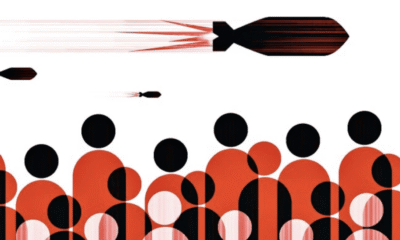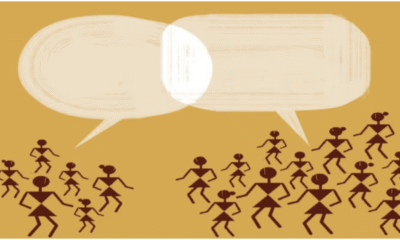
|
Getting your Trinity Audio player ready...
|
(The article was originally published in Indian Express on January 19, 2022. Views expressed are personal.)
On October 30 last year, Prime Minister Narendra Modi met Pope Francis at the Vatican, a meeting that Modi called “very warm”, and the Vatican described as “cordial”. The PM later tweeted that he had invited the Pope to visit India and India’s External Affairs Ministry confirmed that the Pope had accepted.
This should simply be seen as a meeting between the Prime Minister of India and the head of a religious order that boasts the second-largest following in the country. The Pope is not a “head of state” in the conventional sense nor does the UN recognise him as one. Under the Lateran Treaty, a purely bilateral one entered in 1929, King Victor Emanuel of Italy had granted the Vatican independent status. It has neither separate citizenship nor any formal government.
What was admitted at the UN in 1948 as a “non-member state” with only an observer status was not the Vatican but the “Holy See”. The “Holy See” is the supreme governing body of Catholic churches the world over. The Pope is designated as its head, not through any political process but under canon law. Vatican City is regarded only as the “vassal” territory of the Holy See.
That being the reality, not one but two BJP PMs had visited the Vatican and welcomed the Pope to India. Atal Bihari Vajpayee had visited the Vatican in June 2000. A year before, in November 1999, his government facilitated a visit by Pope John Paul Il to India, in which the Pope gave a controversial call: “Just as the first millennium saw the cross firmly planted in the soil of Europe, and the second in that of America and Africa, so may the third Christian millennium witness a great harvest of faith on this vast and vital continent.
Interestingly, President Vladimir Putin has met Pope Francis three times in the last eight years, but not once extended an invitation to him to visit Russia. The Russian Orthodox Church continues to hold on to the millennium-old stance of “no welcome” for a papal visit. The orthodox denominations – in Russia and other countries – insist that the Catholics should desist from “sheep-stealing”, a euphemism for proselytising. Interestingly, Catholics themselves complain about the same by the Mormons and Pentecostals in Europe and America.
These facts are important to understand a few basics. From Jawaharlal Nehru to Modi, all Indian PMs have upheld not only constitutional decorum but displayed the quintessential Indian ethos of respect for all religions. The Indian Constitution zealously safeguards “freedom of religion” as a fundamental right. It was in this spirit of pluralism that PM Modi met the Pope and invited him to India.
Christian missionaries of various denominations have made full use of this constitutional freedom and pluralist ethos to propagate their religion in India for centuries. There is no merit in the argument that Catholics do not convert. Catholic Christianity in India grew over centuries through the early proselytising missions of the Portuguese and Spanish.
While there have been controversies over mass conversions and conversions through fraudulent means, the fundamental right of religious freedom has never been obstructed by any government in India, much less a BJP one. But then, if conversions are legitimate, so are reconversions, over which the apologists make a lot of hue and cry.
This victimhood politics has been integral to some missionaries and their apologists. “Christianity in danger” is a red rag they liberally flaunt whenever they are asked to abide by the law of the land. The latest controversy over FCRA extension to Missionaries of Charity (MoC) is a case in point. By now several facts have come out. It was not just the MoC thousands of other NGOs too were denied the extension on the grounds stipulated by the MHA. They included many Hindu charities and in one case, even a Sewa Bharati affiliated NGO, which has connections with the Sangh Parivar. Many have appealed against the MHA’s decision. In the MoC’s case, the extension was granted despite their not going in for an appeal.
Yet the victimhood machine became hyperactive, from columns in the Indian media to calls in the British Parliament. No doubt, the ministry should have handled the matter more diligently. But the charity must also remember that it has an obligation to follow Indian law, which doesn’t see religion in any applications. Even now, close to 50,000 NGOs are eligible to get FCRA extensions. Many of them, including the MoC, are Christian NGOs. Diverting foreign funds for personal use like purchasing vehicles in personal names, distributing cash doles at weekly church gatherings and misusing them under administrative expenses invite scrutiny for which prestigious charities like the MoC must always be forthcoming. The bigger you are, the greater the scrutiny will be. A Nobel Prize doesn’t exempt one from the law of the land.
Charity and service are not new to India, nor are they the exclusive domain of any religious institution. They are integral to Indian cultural life. The Sangh Parivar itself runs close to 2 lakh service projects in the remotest corners of the country. Missionaries run many educational and healthcare projects, as do Sikh, Jain, Buddhist and Muslim charities. But every time an act of charity or proselytism is scrutinised by law enforcement agencies, the apologists fling into action, casting communal motives on the government and castigating the Sangh Parivar. This is victimhood politics, pure and simple.
Sadly, it gains credibility when those on the other side resort to abusing even the good work that the missionaries do and glorifying controversies that surround such charities. Mother Teresa and her charity do attract some criticism globally, but so do many others of all religions. Linking the MHA’s specific legal action to other controversies and casting aspersions on all missionary institutions will only perpetuate the myth that Christians are being persecuted in India.



